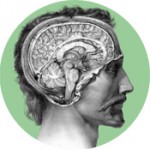Research in our lab focuses on how emotion is coded in the brain, how emotion influences attention and perception, and how we implement cognitive strategies to remain task-focused in the face of emotional distractors. This research combines the fields of clinical psychology, cognitive psychology and neuroscience. To pursue this interdisciplinary research program our lab uses cognitive behavioral tasks, computational modeling, brain imaging techniques such as functional magnetic resonance imaging (fMRI) and event-related brain potentials (ERPs), a range of imaging analyses techniques (univariate, multivariate, connectivity), and different modalities (vision and olfaction) providing diverse and converging ways to examine how the brain anticipates, processes, and counteracts the effects of emotional stimuli in normal and clinical populations. A major goal of research in our lab is to understand how interactions between emotion, perception and cognitive control can contribute to the development and maintenance of anxiety and psychotic disorders.

